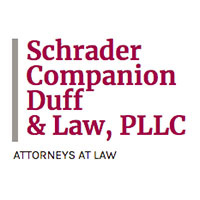Valley Grove Estate Lawyer, West Virginia
Sponsored Law Firm
-
 x
x

Click For More Info:
-
Schrader Companion Duff & Law, PLLC.
401 Main Street Wheeling, WV 26003» view mapAccident & Injury Law Knowledge, Integrity, Results
At Schrader Companion Duff & Law, PLLC., we are well aware of your rights, and are dedicated to getting you the compensation you and your loved ones deserve.
800-939-8771
Sandra K. Law
✓ VERIFIEDEmployment, Accident & Injury, Estate, Workers' Compensation, Divorce & Family Law
Schrader Companion Duff & Law, PLLC., has a distinguished history of providing exceptional legal services for almost a century to clients in litigatio... (more)
Frank A. Jackson
Business Organization, Corporate, Elder Law, Estate Planning
Status: In Good Standing Licensed: 48 Years
Jeffrey W. Mccamic
Real Estate, Estate, Elder Law, Corporate
Status: In Good Standing Licensed: 41 Years
Donna Lynn Crow
Insurance, Litigation, Medical Malpractice, Estate
Status: Inactive Licensed: 35 Years
 Sandra K. Law Wheeling, WV
Sandra K. Law Wheeling, WV Practice AreasExpertise
Practice AreasExpertise

